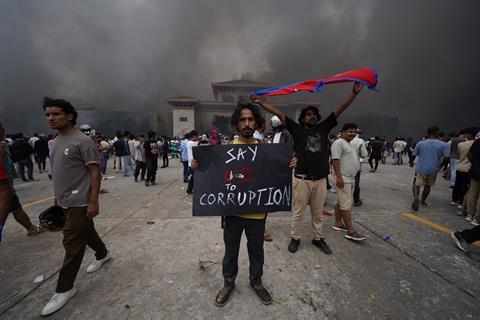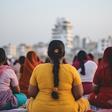As an uprising among Gen Z topples the Nepalese government, the country is at a crossroads, says Narendra Chettri*. If Nepal wants more religious freedom, Christians should pray for a secular government, not a religious one

Nepal is at a critical juncture.
The country is recovering from a youthquake which saw its traditional political establishment turned on its head. It took less than two days for protests led by Gen Z - ostensibly against a ban on social media sites - to topple the government.
Former Prime Minister KP Sharma Oli stepped down the day after demonstrations began.
In the process, 74 people tragically died. Now, as families mourn the loss of their loved ones, many are taking stock and looking to the future. What is next for Nepal?
This might sound odd coming from a Christian, but I want to see the country stick to its secular ideals.
Charting its course
The first monarch of Nepal, King Prithvi Narayan Shah, is said to have referred to Nepal as “a yam between two rocks”. He was describing Nepal’s precarious geopolitical position, squeezed between the powerful nations of India and China.
Nepal has always been keen to chart its own course. In particular, Christians in Nepal have been keeping an eye on India, and they do not want to import the Hindutva religious nationalism that equates being Indian with being Hindu.
If the monarchy are restored, Christians warn it could lead to further oppression
In India, all other faiths are ostensibly considered second class citizens, and Nepalis have seen the violence carried out against minority religions there. They have noted the concerning increase in attacks on Christian communities in southern Nepal by Hindu nationalists coming over the border. They are afraid this is the way that Nepal will go too, and that there will be no place for them as Christians.
In truth, the protests weren’t just about the social media ban. Behind the demonstrations was a deeper resentment, growing public frustration over a persistent lack of employment opportunities, nepotism and corruption allegations against the old guard.
The rise of the RPP
While they started peacefully, the protests were widely reported to be infiltrated by opportunists who used them as a platform for their own agenda. Among them were Hindu nationalists aggressively advocating for Nepal to be declared a Hindu nation under a reinstated monarchy. As a precaution, many churches chose to hold their services online, fearing they might become targets.
Nepal was formerly a Hindu kingdom, but was declared a federal, secular and republic state in 2008, abolishing 240 years of monarchy. Yet the Rashtriya Prajatantra Party (RPP), a right-wing political group, advocates strongly for the restoration of Nepal as a Hindu nation. Recent protests in March and May this year - some of which turned violent - were largely driven by RPP supporters. Although the government managed to contain them, the party continues to push its core agenda.
Christians fear that this could seriously threaten their religious freedom and safety. As a Hindu kingdom, religious freedom in Nepal was limited, and Christianity was not legally recognised. Evangelism and conversion were punishable by imprisonment or even deportation.
If the monarchy and Hindu Rashtra are restored, Christians warn it could lead to further oppression and restrict their ability to practice and share their faith openly.
Desiring democracy
However, for now, Christians are hopeful. For the first time ever, Nepal has a female Prime Minister, 73 year-old Sushila Karki. The protesters selected her as the interim leader of the country in an unprecedented vote on the social media site, Discord.
Karki is a former chief justice, known for her no-nonsense stance against corruption. She is tasked with leading the country towards elections in 2026 and has appointed government ministers including Kulman Ghising, credited with bringing an end to 18-hour daily power cuts.
There have been an increase in attacks on Christians in southern Nepal by Hindu nationalists from India
Nepalese Christians are praying that the newly elected leadership will represent the aspirations of the youth - those who were at the forefront of the protests against the injustices enacted by the deposed government.
They are praying that young people who are taking an active role in directing the country’s future will prioritise democratic values and foster religious harmony.
The signs are encouraging. An ideological shift has occurred in Gen Z. They have roundly rejected the controversial firebrand Hindu nationalist, Durga Prasai, on social media and seem to be in favour of maintaining a secular, federal structure.
Elections have now been scheduled for 5 March 2026. Christians will be watching closely and praying for a democratic leader committed to inclusivity and secular governance, one who prioritises unity and progress. We need to pray that that is what they get.
*Name changed for security reasons



































No comments yet